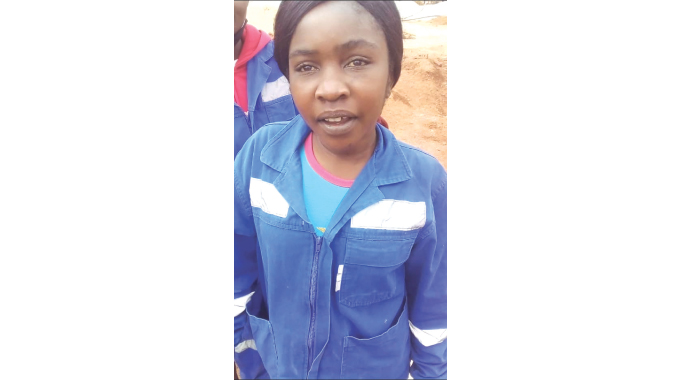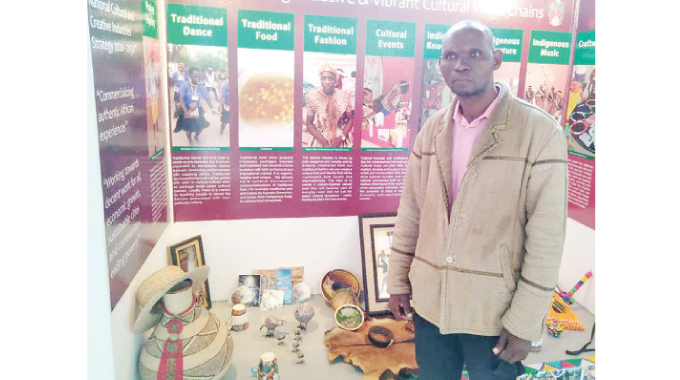Shot in the arm for Hwange villagers

Leonard Ncube in Victoria Falls
VILLAGERS in parts of Chief Mvuthu and Shana areas outside Victoria Falls will no longer walk long distances in search for water and food after Caritas Zimbabwe invested more than US$700 000 in water and sanitation as well as income generating projects.

Caritas Zimbabwe
Caritas is the development arm of the Roman Catholic Church and has a presence in 165 countries including Zimbabwe.
The organisation started a three-year programme in Hwange district in 2019 in four villages namely: Mvuthu, Mpumelelo, Nemananga and Musani.
The three-year cycle for the programme was closed recently and the community expressed gratitude to Caritas for transforming their lives.
Caritas installed three solar-powered boreholes in each village and rehabilitated several existing ones, built dip tanks, established three nutritional gardens in each village, poultry and piggery projects and distributed 10 male Boar goats in each village.
It also built 50 pit latrines for each village and others at schools where specialised girl-friendly toilets were also built.
Mpumulelo dam which was no longer collecting water was rehabilitated to supply Mvuthu and Mpumelelo areas.
Villagers were also trained on gender, child protection and inheritance issues which usually affect rural communities.

National Development Strategy 1 (NDS1)
This is line with aspirations of the Second Republic which strives to attain an upper middle income society by 2030 through implementation of the National Development Strategy (NDS1) of which water and sanitation is a key component.
In an interview, Caritas coordinator Mr Super Dube said the targeted areas were identified in consultation with Hwange Rural District Council which carried a needs assessment and found that four villages were the worst affected.
“As Caritas we have been working in four villages in Hwange Rural for the past three years.
Our projects include food security, where each village has three nutritional gardens and income generating projects in the form of pig and poultry projects.
We also distributed 10 improved breeds of male Boar goats per village for breeding purposes,” he said.
Mr Dube said Caritas rehabilitated Mvuthu dip tank and installed a solar-powered water system which supplies water to the dip tank and Mvuthu garden.
Each of the four villages now has a solar powered borehole and nutritional garden.
Existing boreholes were also rehabilitated and solar system installed.
“We are trying to do away with bush pumps so that it is easier for all community members including children, the girl child, elderly and disabled to access water without any hindrances.
We have invested about $700 000 to all these projects and this has really helped communities, especially women and girls who had to walk long distances to fetch water and they now have more time to do other household chores,” said Mr Dube.
“Members of the community can now grow crops all year round which has improved their nutrition and they can sell excess produce to raise school fees for their children.”
He said pump minders were trained to be able to attend to maintenance issues beyond the programme lifespan.
Fifty pit latrines were built in each village while villagers were trained on hygiene.
At Chimbombo and St Michael’s primary schools Caritas built girl-friendly toilets which offer safe reproductive health facilities for the girl child.
A solar-powered borehole was installed at Sacred Heart Mission to supply St Michaels’ School, Lukunguni Clinic and the community with clean water.
Caritas mobilised villagers from the four villages recently for a hand over of the projects and to announce the end of the three-year programme.
Mvuthu community chairperson Mr Paulos Ntini said Caritas has transformed lives through the projects.
“Caritas came in 2019 and their three-year term ended in June.
We are happy because they fulfilled all the promises they made to the community.
There are some areas that had no clean water since the 1960s when we settled here but through Caritas that has been addressed.
“Some villagers like those near the Chief’s kraal used to walk to neighbouring villages for water but now they have a solar powered borehole and nutritional garden,” said Mr Ntini.
Mpumuleleo village head Mr Charles Moyo said his subjects had been empowered.
“Cleanliness has improved as we now have toilets and clean water.
People now have community gardens where they do conservation farming,” said Mr Moyo.
Another traditional leader Mr Daniso Mabuza said availability of clean water means development for his area as people have time to focus on other developmental projects. – @ncubeleon











Comments